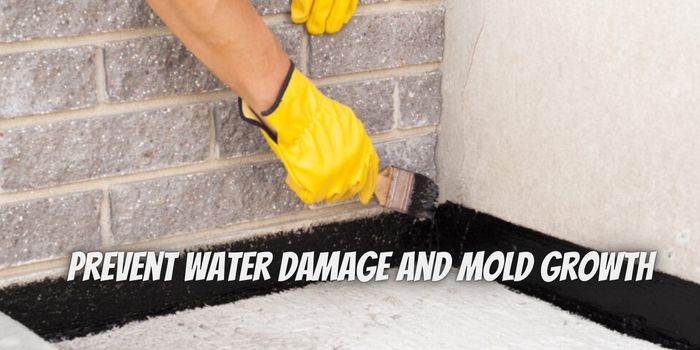In addition to being a key part of your house foundation, the basement also provides a storage or living space. Like any other part of the house, it requires maintenance even when not in use. Among the many things to watch out for is water damage. This can cause all sorts of problems. Contacting a waterproofing company in Louisville is the best way to ensure that your basement doesn’t suffer water damage.
Benefits of Basement Waterproofing
1)Protects the House Foundation
The basement and the foundation are intrinsically linked, with the former usually the closed room to the latter. As such, any waterproofing efforts for the basement also help to protect the foundation. Given the consequences of having foundation issues, basement waterproofing is a good way of avoiding issues that could seriously compromise a house’s entire structure.
2) Prevents Mold Issues
Molds (also called mildew) are fungi that tend to attack wet areas, colonizing them for reproduction and habitation. They tend to cause significant damage. Additionally, mold growth also poses a risk to human health. Some of them can cause serious allergic reactions or lung infections. Molds love moist, wet corners, the kinds that are usually available in basements. Basement waterproofing ensures that the ideal conditions for mold growth are avoided.
3) Lowered Energy Costs
Water leaking into a basement means that there will be more humidity than is necessary. When such humidity permeates the whole house, internal temperature control becomes more challenging. This is because moisture tends to retain more heat than air. All this leads to energy inefficiency. Waterproofing a basement helps to avoid all the energy issues associated with unwanted humidity.
4) Reduces Repair Costs
Usually, it’s cheaper to waterproof a basement than to repair one that has already suffered water damage. Repair due to water damage in a basement extends far beyond its confines. For instance, the water from the basement may find its way into the wall structures, leading to more damage and added repairs. Water damage due to leaks in the basement also negatively impacts a property’s value, making it fetch less on the market. Basement Waterproofing helps to avoid such issues.
Waterproofing a Basement
As a homeowner, there are several things you can do to waterproof your basement. These include:
1) Using a Dehumidifier
Get yourself a residential dehumidifier from your local store to help control moisture in your basement. This will help reduce underground moisture and condensation. These machines work by sucking as much moisture out of the air as possible. You simply plug it into a wall outlet and let it do its work. Once its collecting container is full, empty it. Alternatively, you can use its hose to drain the water collected from the container into a floor drain or a bathtub.
2) Applying Waterproof Sealants to Basement Walls and Joints
Cracks are one of the main ways through which water finds its way into a basement. Similarly, gaps between a basement wall and floor can also allow water. Filling such cracks is easy. You’ll need some hydraulic concrete and waterproof masonry paint. Pour a reasonable amount of the hydraulic concrete into a crack, ensuring that it’s full. Paint it over with waterproof masonry paint. It always helps to clean basement wall surfaces before applying the sealant and paint. This ensures that any remnants or stubborn deposits are removed. Doing this helps to avoid a situation where the waterproof masonry paint comes off after applying it.
3) Apply a Membrane
This method is especially ideal for waterproofing a basement from the outside. The membrane of choice is usually made of asphalt-modified polyurethane. Elastomeric membranes made of the same material can also be used. Spraying these chemicals on the outside of the foundation wall ensures that it becomes impenetrable to water. Elastomeric membranes can expand and move to fill developing cracks later on.
4) Choose Waterproof Carpet Materials
There are thick, waterproof carpets now available. These are ideal for floors through which water seems to seep continuously. Purchase one of these carpets if your basement has issues with water coming up through its floor
5) Hire a Professional Waterproofing Company
Ideally, you want to contact a professional waterproofing coming from the beginning. Unless the problem causing basement water leakage is something as straightforward as a busted faucet, you may not fully grasp the extent of the water leakage. Professional technicians are trained to identify water leakage, one that isn’t always obvious to the untrained eye. Getting such professional help gives you peace of mind, knowing that your waterproofing will be handled satisfactorily.




